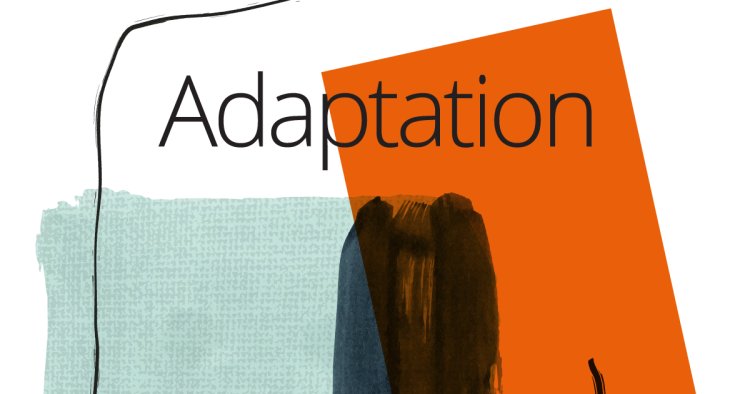Intelligence Is the Capacity to Adapt to Change
Why the Smartest Among Us Are the Ones Who Can Pivot

Forget IQ — Let’s Talk AQ
We’ve been measuring intelligence all wrong.
IQ tests, grades, standardized scores — they all try to capture one thing: what you know.
But here’s a secret:
Knowing things doesn’t make you intelligent.
What makes you intelligent is what happens when everything you know suddenly… stops working.
When the rules change.
When life throws a curveball.
When the map no longer matches the territory.
And you say, “Alright, let’s figure it out.”
That’s real intelligence.
That’s adaptability.
Why This Matters: The World Doesn’t Sit Still
Your job description will change.
Your industry might collapse.
The software you just mastered will be outdated in three years — if not three months.
And beyond the tech and tools, your personal life will shift too.
Friendships evolve. Beliefs get challenged. Health can flip overnight.
Change is not the exception. It’s the constant.
So if your intelligence can’t bend,
It will break.
The Real Definition: Intelligence Is Mental Flexibility
The late Stephen Hawking said it best:
“Intelligence is the ability to adapt to change.”
Not memorize facts.
Not win debates.
Not ace a test.
But to look change in the eye and say,
“Let’s dance.”
Because life isn’t a textbook. It’s a shapeshifter.
And the smartest people aren’t the ones with all the answers.
They’re the ones who know how to ask better questions when the ground moves.
The Traits of Truly Adaptable People
Let’s break down what adaptability-as-intelligence actually looks like:
1. Curiosity Over Certainty
They don’t panic when the old rulebook gets tossed.
They get curious.
“What’s this new problem trying to teach me?”
2. Emotional Agility
They feel the shock. The fear. The frustration.
But they don’t get stuck in it.
They move through it.
3. Willingness to Learn, Unlearn, and Relearn
Today’s expert might be tomorrow’s beginner.
Adaptable minds know how to shed outdated knowledge like old skin.
4. Problem-Solving Without a Script
They’re okay with improvising.
They might fall on their face — then invent a new dance move on the way back up.
5. Resilience Without Rigidity
They bounce back.
Not because they’re invincible,
But because they’re elastic.
Quick Anecdote: The Two Employees
Imagine two brilliant employees.
One is top of their field, razor-sharp, known for being a technical genius.
They follow protocols perfectly, master systems, and know everything…
…until the system breaks.
And suddenly, they’re lost.
The other is quick to say, “I don’t know, but I’ll figure it out.”
They stay calm when things go sideways.
They ask for help. They try new approaches. They learn, fast.
Guess who survives the company’s next pivot?
(Hint: It’s not the walking encyclopedia.)
Adaptability in the Real World
It’s not just a nice idea. It’s a survival skill.
In business:
Markets shift. Customer behavior changes. Entire industries can go extinct.
Just ask Blockbuster. Or Kodak. Or anyone who thought TikTok was “just a fad.”
In relationships:
People change. Needs evolve. The ability to adapt is the difference between growing together — or growing apart.
In health:
An unexpected diagnosis. An injury. Aging.
Adaptability is the power to say, “Okay, Plan A is gone. Let’s find Plan B.”
In identity:
As you grow, you shed layers. Beliefs. Roles. Labels.
Staying rigid in who you used to be is a quiet way to disappear.
Adaptability Is Not Weakness. It’s Mastery.
Some people think changing your mind is flaky.
That pivoting is cowardice.
That flexibility means you don’t stand for anything.
But here’s the truth:
Adaptability takes courage.
It takes humility.
It takes a level of self-awareness that most people never reach.
Rigid people cling to what worked yesterday.
Smart people ask, “What works now?”
And then they go learn it.
The Takeaway: Upgrade Your Intelligence by Upgrading Your Response
If you want to be truly intelligent in the modern world,
Ask yourself:
- Can I stay calm when the plan falls apart?
- Can I learn something entirely new without resenting it?
- Can I be open to being wrong… and excited to grow from it?
Because how you respond to change is your intelligence, in motion.
Outro: Make Peace With Change. Then Make Use of It.
Change is coming.
In your job, your health, your city, your heart.
You can fight it. Deny it. Hide from it.
Or you can meet it with a raised eyebrow and a half-smile and say:
“Interesting. Let’s see where this goes.”
That’s intelligence.
Not just surviving the storm —
But becoming the kind of person who can sail right through it.
___________________________________
Like it?
Buy me a coffee HERE !
Then:
Monetise your writing on scribis.net
Thanks













